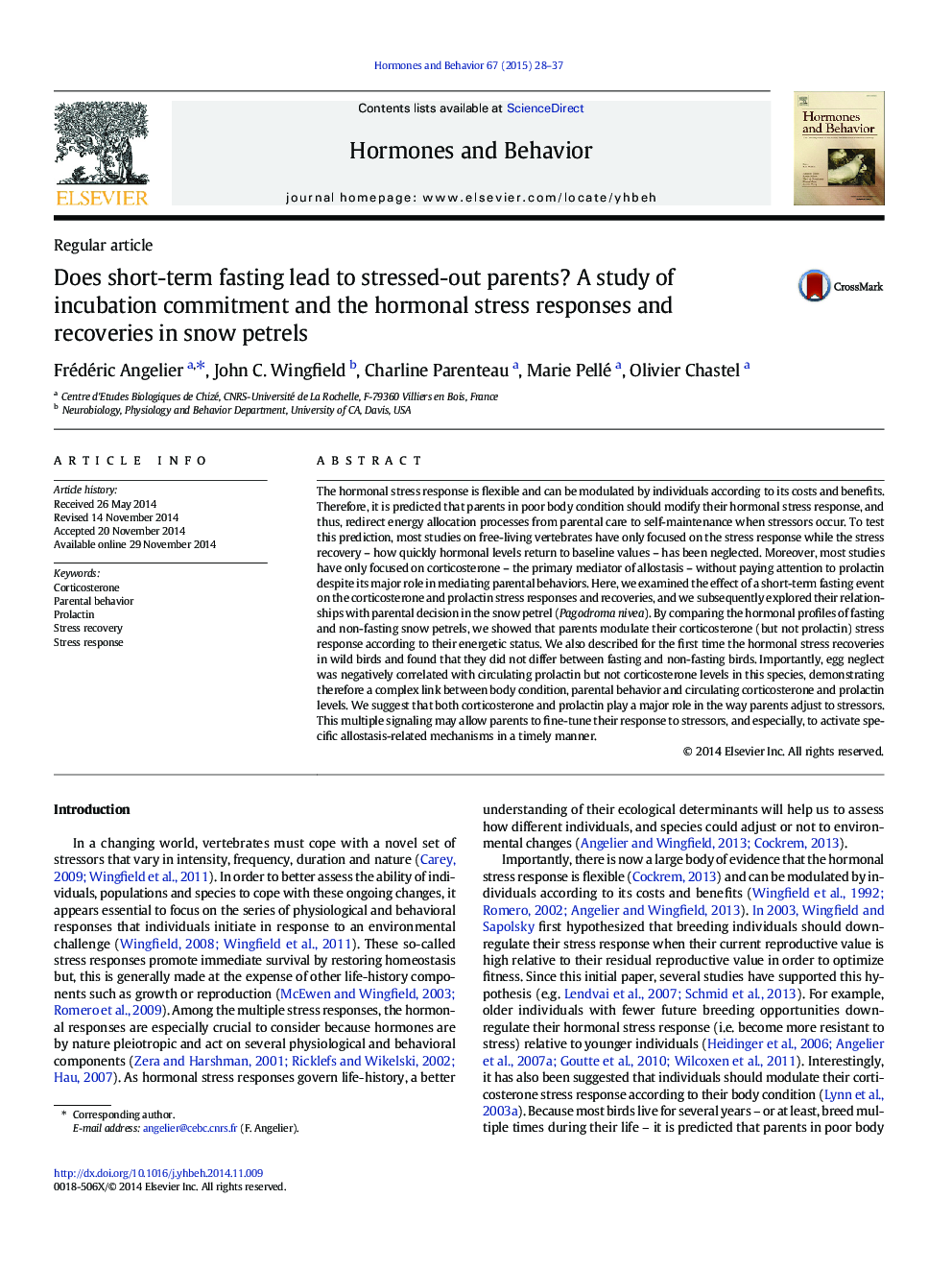| Article ID | Journal | Published Year | Pages | File Type |
|---|---|---|---|---|
| 322684 | Hormones and Behavior | 2015 | 10 Pages |
•We tested the effect of fasting on the hormonal stress responses/recoveries.•We linked the hormonal profiles (corticosterone/prolactin) to incubation commitment.•The corticosterone (but not prolactin) stress profile is affected by fasting.•Prolactin (but not corticosterone) stress profile is linked to parental behavior.•Both hormones play a major role in the way parents adjust to stressors.
The hormonal stress response is flexible and can be modulated by individuals according to its costs and benefits. Therefore, it is predicted that parents in poor body condition should modify their hormonal stress response, and thus, redirect energy allocation processes from parental care to self-maintenance when stressors occur. To test this prediction, most studies on free-living vertebrates have only focused on the stress response while the stress recovery – how quickly hormonal levels return to baseline values – has been neglected. Moreover, most studies have only focused on corticosterone – the primary mediator of allostasis – without paying attention to prolactin despite its major role in mediating parental behaviors. Here, we examined the effect of a short-term fasting event on the corticosterone and prolactin stress responses and recoveries, and we subsequently explored their relationships with parental decision in the snow petrel (Pagodroma nivea). By comparing the hormonal profiles of fasting and non-fasting snow petrels, we showed that parents modulate their corticosterone (but not prolactin) stress response according to their energetic status. We also described for the first time the hormonal stress recoveries in wild birds and found that they did not differ between fasting and non-fasting birds. Importantly, egg neglect was negatively correlated with circulating prolactin but not corticosterone levels in this species, demonstrating therefore a complex link between body condition, parental behavior and circulating corticosterone and prolactin levels. We suggest that both corticosterone and prolactin play a major role in the way parents adjust to stressors. This multiple signaling may allow parents to fine-tune their response to stressors, and especially, to activate specific allostasis-related mechanisms in a timely manner.
